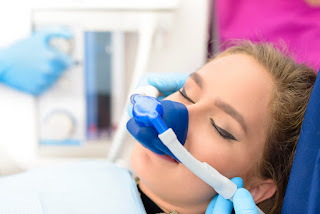Is Sedation Dentistry Safe During Pregnancy?

While pregnancy can bring many moments of joy, it can also cause a lot of stress, particularly when it comes to the safety of the baby and mother. Pregnancy can also cause the mother to experience certain dental issues such as swollen gums, bleeding, or gum irritation because of the rise in hormone levels. Many experts recommend expecting mothers to take great care of their dental health an get some preventive work when the first signs of trouble appear. But when things go wrong, and the expecting mother requires dental procedures that need sedation , the question begs: is it safe for the baby? Experts Say There Is Generally No Need to Worry According to the American Dental Association , there is generally no need to worry about the local anesthetics used during various procedures like fillings, root canals, or teeth removal. The Journal of the American Dental Association published a study in which they discovered that sedation substances like lidocaine shots used for ...







